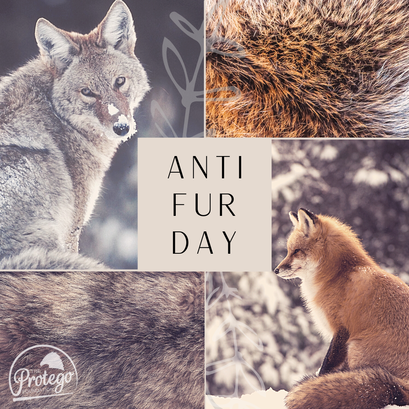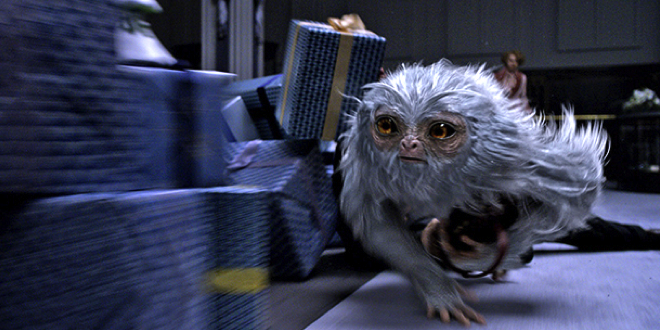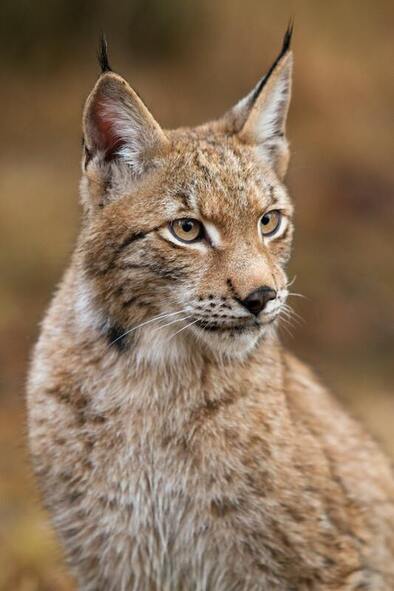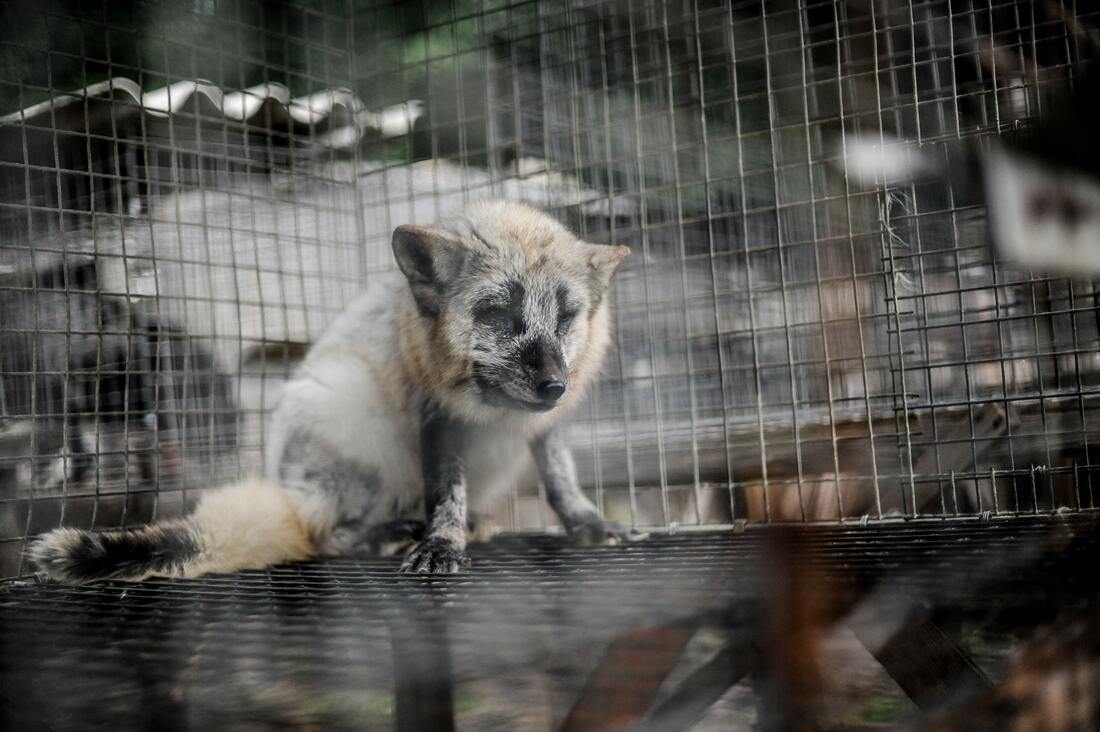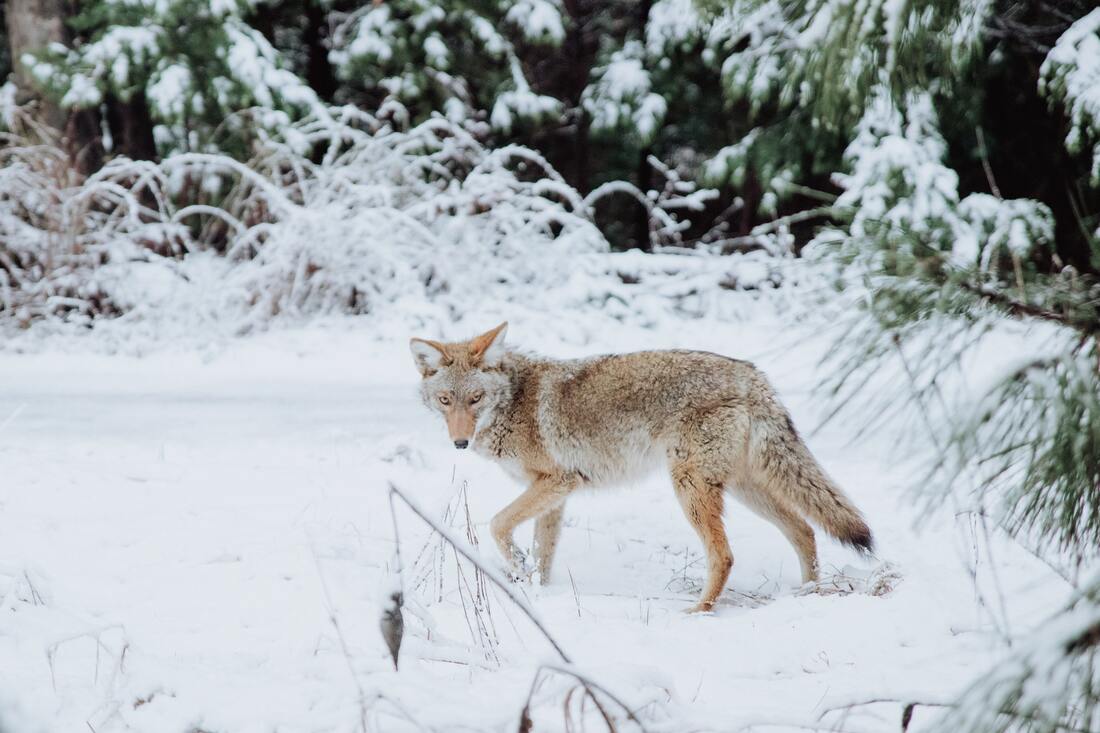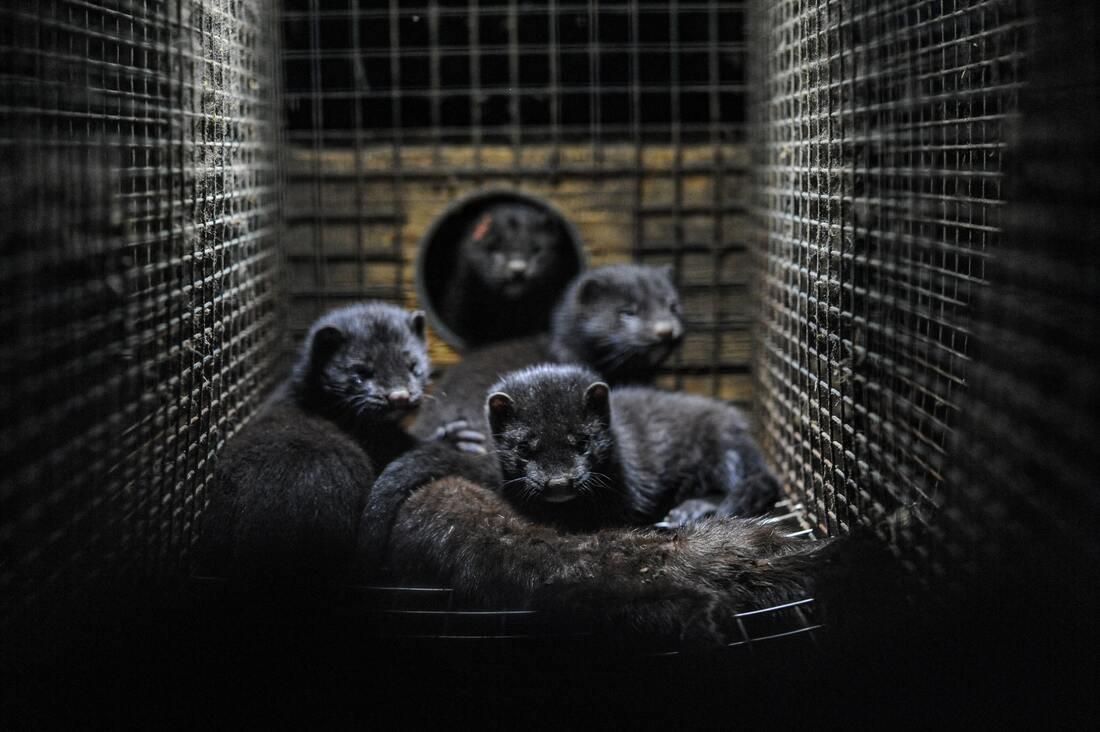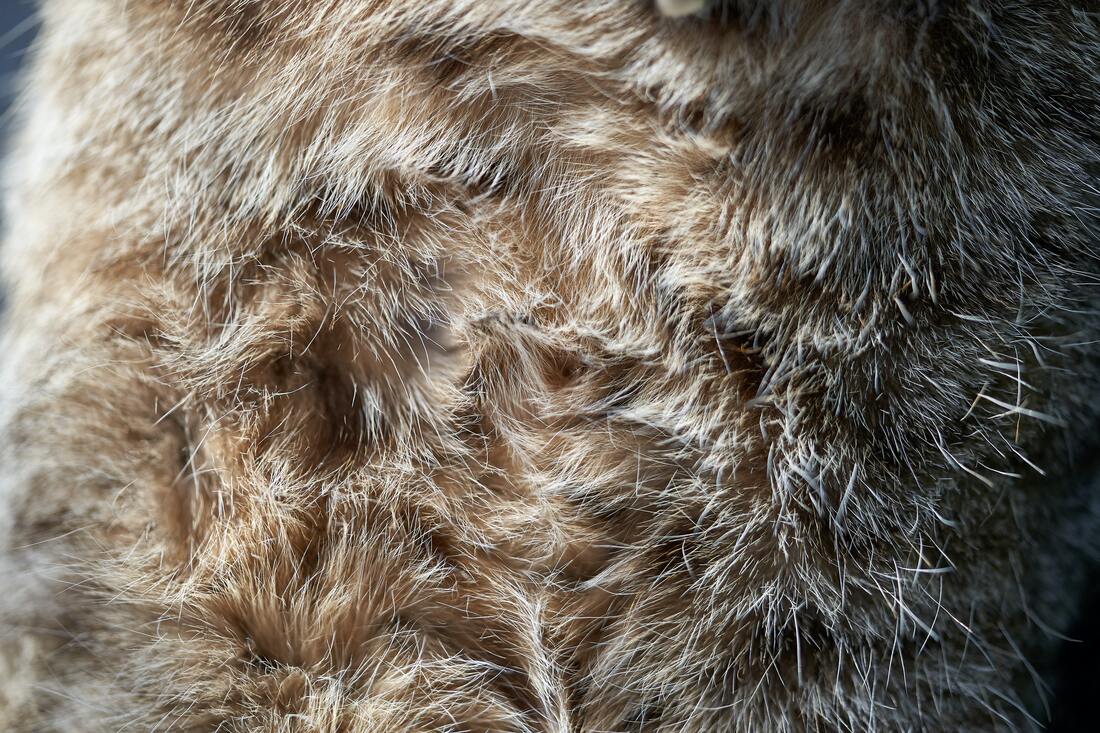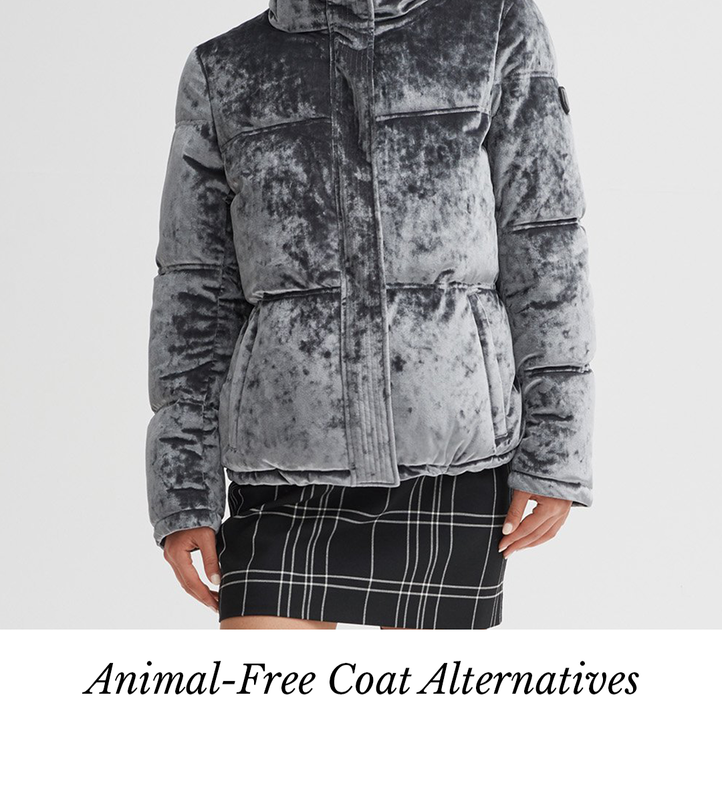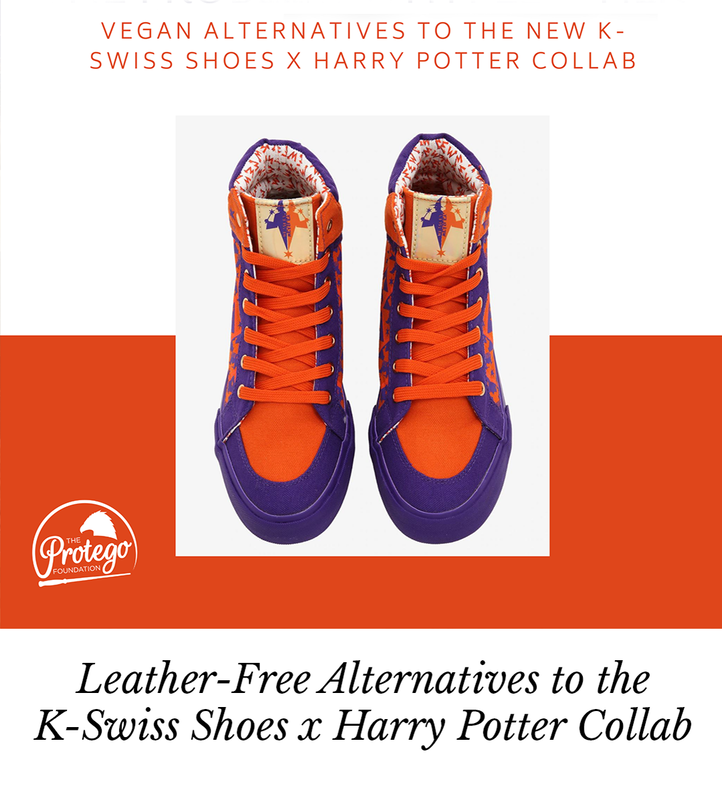Let’s start with fur use in the wizarding world. “The Demiguise is a peaceful herbivorous beast, something like a graceful ape in appearance, with large, black, doleful eyes more often than not hidden by its hair. The whole body is covered with long, fine, silky, silvery hair. Demiguise pelts are highly valued as the hair may be spun into Invisibility Cloaks.”
Because of how highly valued Demiguise fur is, Invisibility Cloaks have become a mark of status in the wizarding world. Not just anyone could afford one, and those who do tend to come from money or a privileged background. This is a lot like how fur coats have been depicted in the Muggle world. For decades, fur coats were seen as the height of luxury and high fashion. And as such, only the wealthiest Muggles could afford them. And when they could, they wore them with pride. In The Protego Foundation’s eyes, there’s nothing elegant about skinning animals to turn their hair into clothing or accessories for us to wear. The harsh truth is that even in 2021, the fur industry is still thriving. Let’s start by debunking one of the greatest myths perpetuated by the fur industry. Myth: Fur trim is a by-product. Wrong. 100 million animals are killed worldwide for their fur every year. Over half of those 100 million animals are killed explicitly for their fur to be used as trim in jackets and other clothing and accessories.
It’s not all bad, though. There are changes on the horizon. In 2019, California banned fur manufacturing and selling fur products. It’s the first state in the United States to do so. Other countries are also getting behind the fur free movement. Norway, the UK, the Netherlands, and Belgium are among the countries that have banned fur production. Austria, the Czech Republic, Croatia, Northern Ireland, Luxembourg, Bosnia, and Slovenia are among the countries that have banned fur farming. And, as of 2017, India has banned all fur imports. At the time of this article, 300 brands and retailers have fur free policies. Some of these include leading high fashion labels like Burberry, Versace, and Chanel. Department stores like Macy’s and Bloomingdales have also stopped using and selling fur in their products. You can find a comprehensive look at what fashion companies and stores have banned fur on the Fur Free Retailer website. PETA has been advocating for Canada Goose to phase out fur since 2006. The animal rights organization continues to urge the company to go fur free. The Protego Foundation’s Campaign and Outreach Manager, Erika Wilkinson, has been part of PETA’s protests against Canada Goose. Wilkinson says animal rights activists will continue to put pressure on the company. She also says there are ways you could help animals and take action against the fur industry right now. Protests, emails, phone calls, and signing petitions are steps you can take to demand an end to fur. And don’t underestimate the power of education. Learning about alternatives to fur and telling your friends and family why going fur free matters can make a huge difference. You could also look into your local state’s laws and see if any activist groups are trying to pass legislation banning or bringing an end to fur use. If California can do it, why not the rest of the US? Why not the entire Muggle world? This Anti-Fur Day, pledge to stand for animals and against the fur industry with The Protego Foundation! Written by Victoria Tomis ACCIO MORE ARTICLES:
1 Comment
Harry Donnelly
3/19/2022 08:17:05 pm
Have been giving reviews of companies clothing lines and urging people to look at and look up, how clothing materials are obtained!!
Reply
Your comment will be posted after it is approved.
Leave a Reply. |
The Protego Foundation's work is made possible, in part, thanks to Tylor Starr.
The Protego Foundation and its activities are not licensed by, sponsored by or associated with Warner Bros., J.K. Rowling, or their affiliates. 'Wizarding World,' 'Harry Potter,' ‘Fantastic Beasts' and all related names, characters and indicia are trademarks of and © Warner Bros. - Harry Potter publishing rights © J.K. Rowling.
FEIN 83-3531129
The Protego Foundation and its activities are not licensed by, sponsored by or associated with Warner Bros., J.K. Rowling, or their affiliates. 'Wizarding World,' 'Harry Potter,' ‘Fantastic Beasts' and all related names, characters and indicia are trademarks of and © Warner Bros. - Harry Potter publishing rights © J.K. Rowling.
FEIN 83-3531129

